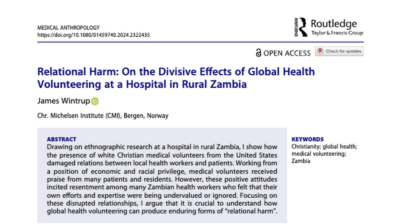U4 Brief
| 2012
Using power and influence analysis to address corruption risks: The case of the Ugandan drug supply chain
Bergen: Chr. Michelsen Institute (U4 Brief 2012:6) 4 p.
Power and influence analysis can be used to assess corruption vulnerabilities in the public sector. This approach helps identify powerful stakeholders that should be engaged to achieve maximum impact for anti-corruption strategies. It also helps reveal informal political networks and relationships that can hamper anti-corruption efforts. Power and influence analysis was applied to the Ugandan public sector drug supply chain and suggested that interventions aimed at reducing corruption risks would need to take into account the influence of informal political power in addition to the formal institutional mandates, and the prevalence of a vast network of patronage networks across the country.





